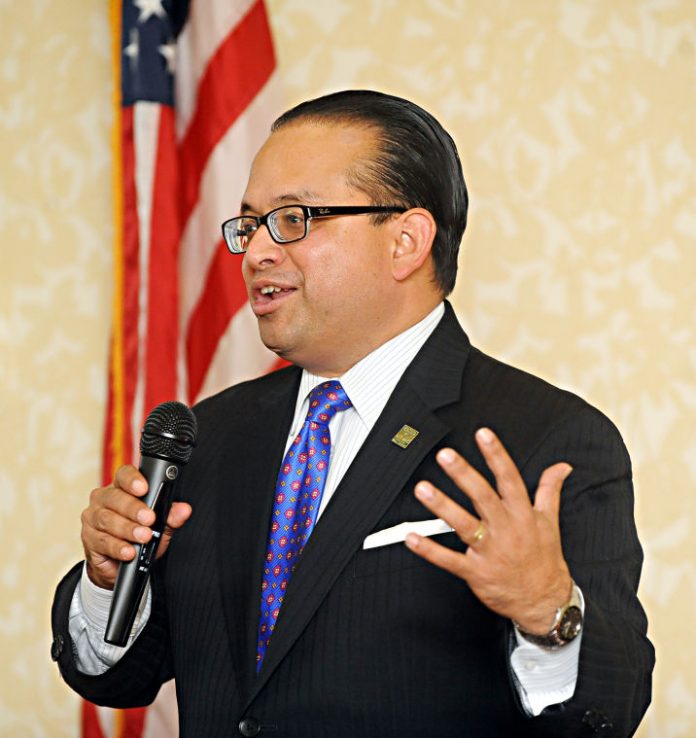
Local Assemblyman Luis Alejo’s busy legislative session culminated with the governor signing 16 of his bills, including a nationally spotlighted ban against the use of “Redskins” as a mascot in California public schools.
Alejo’s bill, reported and opined on by national media, will make California the first state to ban use of the charged mascot name in light of controversy surrounding Washington, D.C.’s National Football league team. The debate erupted in recent years over the Native American mascot for the Washington Redskins and public pressure on the owner to change the name that critics call offensive and racially insensitive.
The Washington Post even chimed in on the Alejo bill in an editorial published Oct. 12 referring to the California legislation as a “stinging loss” for the Washington team.
Alejo’s bill moved the debate to California, which has four public high schools using the Redskins mascot. Those schools—which include Gustine High over the Pacheco Pass—must change their mascot and related insignia by January 2017. Other state high schools with the same mascot are in Chowchilla, Tulare and Calaveras, according to MaxPreps.com.
To an extent, the move is symbolic in a state with rich Native American tradition. As Alejo noted in his statement released after the governor’s signing, California has the highest population of Native Americans in the country. Valentin Lopez, chairman for the local Amah Mutsun Tribal Band, said his tribe supported Alejo’s legislation.
“We totally support it and we’re very thankful for Assemblymember Alejo for carrying that bill and the governor for signing it,” Lopez told the Free Lance.
Less thankful are many in the Gustine High School community.
New Gustine Unified School District Superintendent Bill Morones—he’s been on the job four months—defended the high school’s tradition, noting how Redskins has been the mascot for eight decades.
“For the past 80 years, the community at large has been very proud and honored to have the Redskins as our mascot,” Morones said, later adding how the school community has been “very respectful of the Native American Indians.”
While moving ahead on the process for a change—the school is in the process of convening a mascot committee made up of students, alumni and others—Morones said it remained unclear if the state would reimburse the affected schools for related costs.
He said the district would have to change all the uniforms and other athletic equipment that include the mascot. There could be construction mandates as well. He said the Redskins image is embedded in the gym floor.
“That means we have to dig up the gym floor and take out the mascot,” he said.
Alejo did not respond to an interview request, but released a statement following the governor’s signatures. He noted that the term was once used to describe bounties for Native American scalps.
“California is now the first state in the nation to enact a statewide policy to phase out the use of a dictionary defined racial slur, the ‘R-word’, in our public schoolsd,” he wrote. “As the state with the largest Native American population, I am proud to have authored this legislation and applaud Governor Brown for taking a stand against racial slurs used by our public schools.









